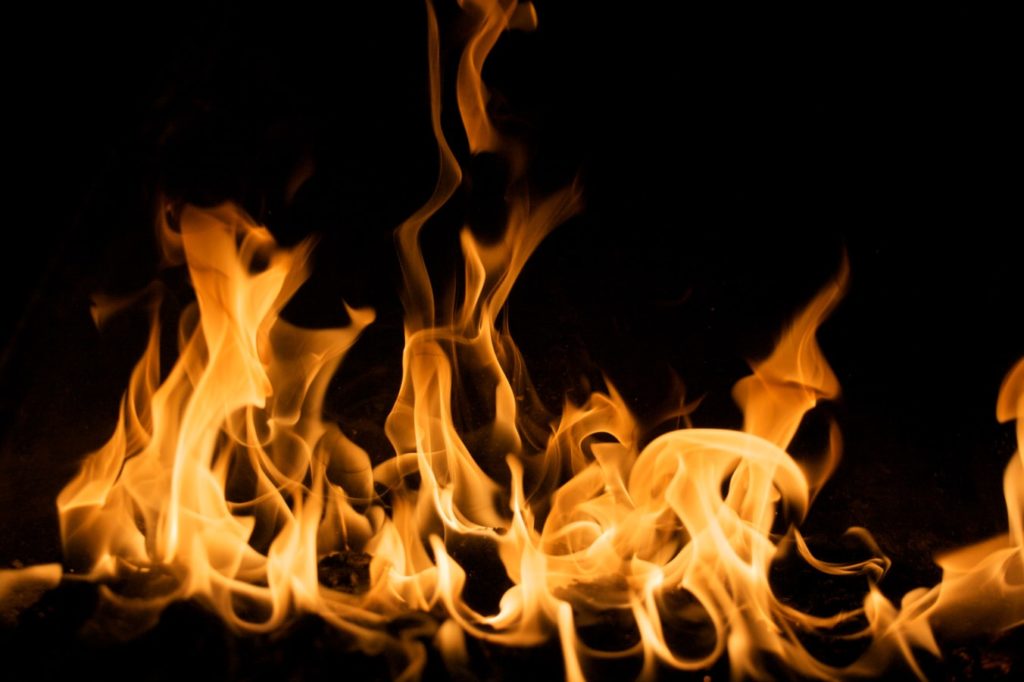I’m one of the hundreds of thousands of Americans being impacted by the wildfires raging across thousands of miles in the U.S.
I’m currently coming to you from my friend’s garage in Boise, Idaho, where I’ve set up a tent bedroom and toolbench office (because COVID) after fleeing hazardous air quality and fires moving ever-closer to my usual stomping grounds in Oregon.
That the fire part.

Here’s the thalamus part:
I’m finally reading The Body Keeps The Score, after a half-decade of having it vehemently recommended from many corners of my world. It’s an excellent treatise on what is happening to the structures inside our brains when life is less than optimal. My ah-ha moments to pages-read ratio is basically 1:1. (Seriously. Read it!)
I learned the thalamus in the brain combines incoming information into a coherent experience. Hold on to that factoid for a minute.

The thalamus is the red bit. (Perfect color – going to fit in soooo well with the metaphor I’ll eventually make. Read on!)
Thanks to my relatively new skill of noticing what is (instead of my life-long skill of noticing what should/could be), I observed many things about my mental and emotional state as I:
- left my home just after midnight this past Tuesday
- drove many hours in the middle of the night to relative smoke/fire safety
- slept in my car for a hot minute next to a freeway under Walmart-parking-lot floodlights
- drove under-slept most of the next day to social safety
- set up my garage-refugee life
- started adjusting to new reality
I noticed a consistent chasm between what I expected myself to be able to do and what I could actually, reasonably do. E.g. Despite being in refugee mode, there’s no reason I can’t still work, exercise, keep up with correspondence, and sort out healthy meals, right? (I hope you’re laughing!)
Then I realized that pattern is everywhere in my life, the lives of those around me, and in Western culture at large. In short, I think Western culture dramatically underestimates the cognitive impacts of instability.

Tell me this isn’t the perfect metaphor for the instability of 2020!
According to the book I just mentioned, in threatening situations the thalamus can break down. “Normal memory processing disintegrates.” Even if you aren’t experiencing COVID as a “threatening situation” and aren’t a fire-refugee, even if your thalamus isn’t breaking down, surely it’s glowing fire-hot with the effort of combining the incoming train wreck of 2020 into a coherent experience?
All I want to say is that it seems instability causes our brains to work double-time. When we fail to respect and allow for that reality, we can end up feeling at best bewildered by our own “incompetence” and at worst full of self-loathing for falling short of our own (ridiculous?!) expectations.
For instance, maybe there is simply no room left in your mind to take advantage of the pandemic perks I mentioned in the last email missive. That’s okay! I see you! Deep breaths. Keep breathing.

If you’ve been expecting yourself to keep functioning in 2020 like you did in 2019, can I invite you to give yourself a little grace? Can I ask your inner parent to go easy on you right now? Tell them your thalamus’ inbox is overflowing and needs you to spend more time staring at walls and doing mindless, “unproductive” things so it can do its very important, very “productive” job!




Twitter Facebook Google+ StumbleUpon Reddit Pinterest